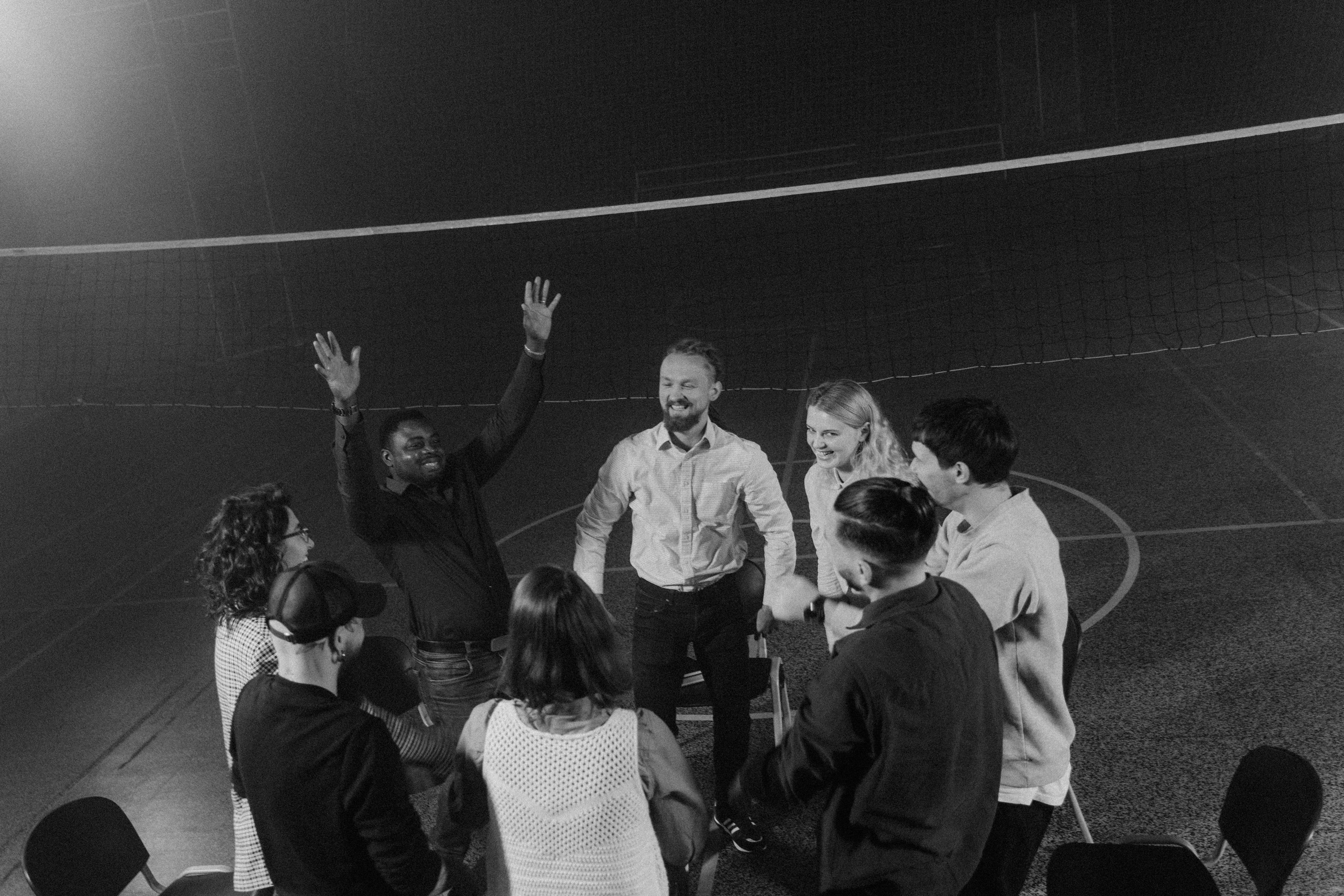Embarking on the journey of a PhD is an ambitious and rewarding endeavor. However, it can also be fraught with unexpected challenges and surprises. As a current PhD student reflecting on my academic journey, there are several things I wish I knew before starting my PhD. Here, I share these insights with you, hoping to provide some guidance as you consider or begin your own PhD journey.
1. The Importance of Choosing the Right Advisor

One of the most critical decisions you will make during your PhD journey is selecting your advisor. Your advisor will play a significant role in shaping your academic experience, providing guidance on your research, and supporting your career development. It’s essential to choose someone whose research interests align with yours and who has a mentoring style that suits your needs.
I wish someone had emphasized the importance of thoroughly researching potential advisors. Speak with their current and former students to understand their advising style, availability, and how they handle conflicts. A good advisor can make your PhD experience enriching, while a poor match can lead to unnecessary stress and setbacks.
When applying for a PhD, it’s crucial to consider the advisor’s research group dynamics and the overall environment. Are the lab members collaborative or competitive? Do they support each other? These factors significantly impact your daily experience and overall satisfaction with your PhD program. Additionally, consider the advisor’s track record in terms of publication, funding, and their students’ success. These indicators can give you a sense of the opportunities and support you might receive.
Engaging with potential advisors through email or informational interviews can provide insights into their expectations and whether they align with your goals. Remember, this relationship can last for several years, and having a supportive and compatible advisor is invaluable for your PhD journey.
2. The Reality of Imposter Syndrome

Imposter syndrome is a common experience among PhD students. Despite your achievements and acceptance into a PhD program, you may still feel like you don’t belong or aren’t capable enough. I wish I knew before starting my PhD that these feelings are normal and experienced by many.
To combat imposter syndrome, remind yourself of your accomplishments and seek support from your peers and mentors. Remember that everyone in your program is facing similar challenges, and it’s okay to ask for help.
Acknowledging and discussing imposter syndrome openly with peers can help demystify these feelings. Many students find solace in knowing they are not alone and that even established academics experience self-doubt. Building a support network where you can share your experiences and receive encouragement is crucial.
Engaging in regular self-reflection and setting realistic goals can also mitigate imposter syndrome. Celebrate your progress, no matter how small, and recognize that growth and learning are continuous processes. Your presence in the PhD program is a testament to your capabilities and potential.
3. The Need for a Strong Support Network

Starting a PhD can be isolating, especially if you’re moving to a new city or country. Building a strong support network is crucial for your well-being. This network can include fellow PhD students, friends, family, and professional mentors.
I wish I had known the importance of actively seeking out and maintaining these connections. Join student organizations, attend social events, and make an effort to stay connected with loved ones. A strong support network will provide emotional support, advice, and a sense of community throughout your PhD journey.
Participating in academic and social events can help you form meaningful connections. Graduate student associations, interest groups, and social gatherings are excellent opportunities to meet peers and share experiences. Establishing relationships outside of your academic circle is also beneficial, providing a balanced perspective and a break from the intense focus of your research.
Professional networking is equally important. Attend conferences, workshops, and seminars to meet experts in your field. These connections can lead to collaborations, mentorship opportunities, and potential career prospects. A robust professional network can offer guidance, support, and resources throughout your PhD journey and beyond.
4. The Balance Between Research and Personal Life
Balancing the demands of a PhD program with your personal life can be challenging. The pressure to produce high-quality research can lead to overwork and burnout if not managed properly.
I wish I had learned earlier how to set boundaries and prioritize self-care. Schedule regular breaks, maintain hobbies, and make time for activities that bring you joy. Remember, your well-being is essential for sustained productivity and success.
Setting clear boundaries between work and personal time is crucial. Establishing a routine that includes designated work hours and time for relaxation can help maintain this balance. Taking regular breaks and engaging in physical activity can enhance your productivity and mental health.
Time management skills are vital for maintaining a healthy balance. Prioritize tasks, set realistic deadlines, and avoid overcommitting. Learn to say no when necessary to protect your time and energy. Remember, your PhD journey is a marathon, not a sprint, and maintaining a sustainable pace is essential.
5. The Unpredictability of Research
Research is inherently unpredictable. Experiments may fail, data may not align with your hypotheses, and timelines can shift. I wish I knew before starting my PhD that setbacks are a natural part of the research process.
Being adaptable and resilient is crucial. Embrace the uncertainty and view challenges as opportunities to learn and grow. Your ability to navigate these obstacles will make you a stronger researcher.
Developing a flexible mindset is key to handling the unpredictability of research. Be prepared to pivot your approach and explore alternative solutions. Maintaining a positive attitude and viewing setbacks as learning experiences can help you stay motivated.
Collaboration and seeking feedback from peers and advisors can provide new perspectives and potential solutions. Regularly discussing your progress and challenges with your advisor can help you stay on track and make necessary adjustments to your research plan.
6. The Importance of Publishing
Publishing your research is an important part of your PhD journey. It helps establish your credibility in the academic community and enhances your CV. I wish I had known earlier how critical it is to start thinking about publishing from the beginning.
Work closely with your advisor to identify suitable journals and conferences for your work. Aim to have a publication strategy and timeline, and don’t be discouraged by rejections—they are a normal part of the academic process.
Understanding the publication process and setting realistic goals can help you navigate this aspect of your PhD journey. Familiarize yourself with the requirements and expectations of your field, including the types of journals and conferences that are most respected.
Collaborating with peers and mentors on publications can enhance the quality of your work and increase your chances of acceptance. Take advantage of writing workshops, peer review groups, and other resources available to improve your research and writing skills.
7. The Financial Realities
Pursuing a PhD often comes with financial challenges. Stipends may be modest, and you might need to budget carefully. I wish I had a clearer understanding of the financial realities before starting my PhD.
Explore funding opportunities such as scholarships, grants, and teaching assistantships. Learn to manage your finances wisely to reduce stress and allow you to focus on your research.
Creating a detailed budget and tracking your expenses can help you manage your finances effectively. Prioritize essential expenses such as rent, utilities, and groceries, and look for ways to save on non-essential items.
Consider seeking additional income sources, such as part-time work or freelance opportunities, if it doesn’t interfere with your studies. Many universities offer on-campus jobs or research assistant positions that can provide extra income and valuable experience.
8. The Value of Teaching Experience
Teaching can be a valuable part of your PhD experience. It helps you develop communication skills, reinforces your knowledge, and can be fulfilling. I wish I knew the importance of gaining teaching experience early in my PhD journey.
If possible, seek out teaching opportunities and get involved in academic mentoring. This experience can be beneficial for your career, whether you choose to stay in academia or pursue other paths.
Teaching experience can enhance your CV and make you a more competitive candidate for academic positions. It also provides an opportunity to develop valuable skills such as public speaking, organization, and time management.
Mentoring undergraduate students or participating in outreach programs can also be rewarding and help you build a strong professional network. These experiences can provide insights into different teaching styles and methods, enriching your overall academic journey.
9. The Need for Career Planning
While a PhD is often associated with an academic career, it’s important to consider other career paths as well. I wish I had known to start thinking about my career options from the beginning of my PhD program.
Attend career workshops, network with professionals in your field, and explore opportunities outside of academia. Having a clear understanding of your career goals will help you make informed decisions and prepare for life after your PhD.
Starting a PhD is a significant commitment that requires dedication, resilience, and a proactive approach. These are the things I wish I knew before starting my PhD. By being aware of these insights, you can better navigate the challenges and make the most of your PhD experience. Remember, your PhD journey is unique, and embracing both the highs and lows will help you grow as a researcher and individual.
Starting a PhD is both an exciting and demanding journey. Reflecting on the things I wish I knew before starting my PhD, it’s clear that being well-prepared and informed can significantly impact your experience. From choosing the right advisor to balancing research with personal life, these insights can help you navigate your PhD journey more effectively.
Whether you are just considering applying for a PhD or are already in the midst of your program, take these lessons to heart. They will help you stay focused, motivated, and resilient throughout your academic journey. Pursuing a PhD is a remarkable achievement, and with the right preparation and mindset, you can thrive in this challenging yet rewarding endeavor.
Your PhD journey will be filled with unique experiences and learning opportunities. Embrace the challenges, celebrate your successes, and remember that every step, no matter how small, is a part of your growth as a researcher and individual.









